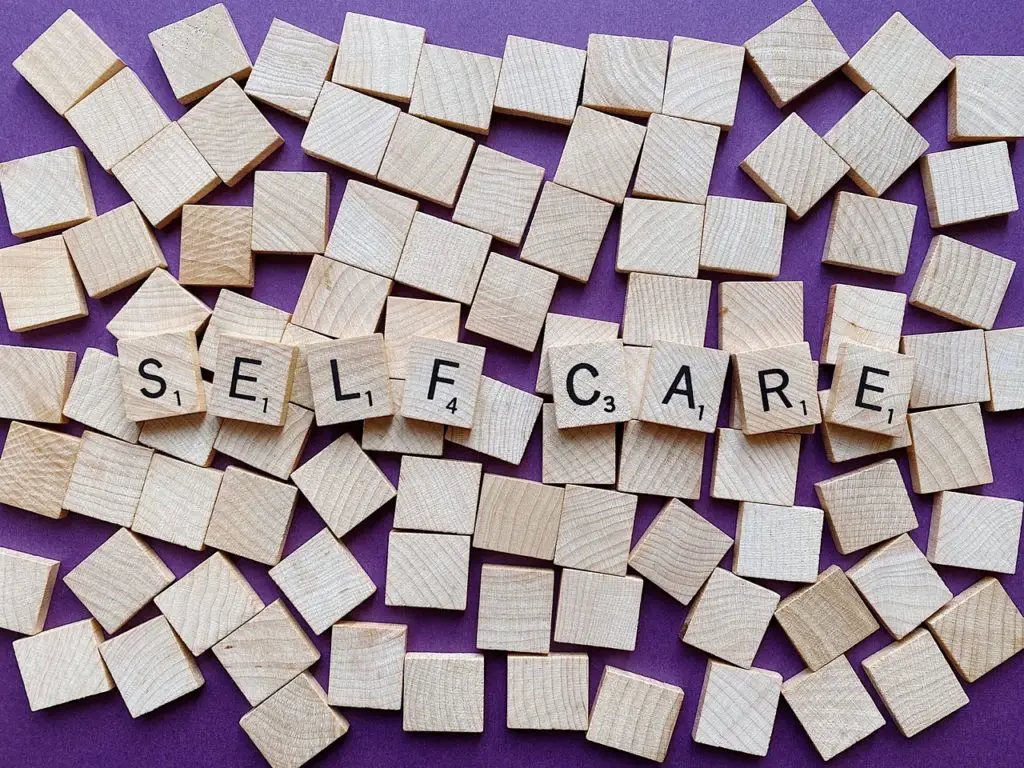Co-Writer: April Joy E. Jaca

Table of Contents
Introduction
It is more crucial than ever to take care of our mental health in the fast-paced, arduously challenging world of today.
Every element of our life, including our relationships, productivity, and general aspirations are naturally impacted by our well-being, mental health and how we took the positive approach.
We can live more fulfilled lives and handle life’s obstacles better if we put our mental health first. We’ll look at some crucial advice for further enhancing the mental health well-being in this goalpost.
7 Mind Matters: Essential Tips for Nurturing Your Mental Health Well-being
1. Engage in Self-Care
Self-care is necessary and is not selfish. We frequently put off taking care of our personal needs in order to fulfill the requirements of job, family, and other obligations in our busy life. But it’s important to give yourself some space if you want to keep your mind in excellent shape. Taking part in enjoyable and relaxing activities might help you feel better and reduce stress. Prioritize activities that refresh and renew your mind, whether it’s reading a book, having a warm bath, meditating, or engaging in a hobby.
2. Develop Healthful Habits
Well-being on both the physical and mental levels is interdependent. We assist our mental health when we look after our physical health. Make sure you get enough sleep to begin with. Lack of sleep can make it easier to feel stressed, anxious, and moody. Establish a calming nighttime ritual and strive for a regular sleep pattern.

Nutrition is just as important to mental health as sleep is. Essential nutrients for brain function may be obtained via a well-balanced diet that includes fruits, vegetables, whole grains, lean meats, and healthy fats. Caffeine and processed meals should be consumed in moderation since they might have a detrimental effect on your mood and energy levels.
Another essential element of sustaining excellent mental health is regular exercise. Endorphins, which are endogenous mood enhancers, are released when you exercise. Make exercise a regular part of your life by finding a regimen that meets your tastes. Simple things like going for a daily walk or joining a sports team can help.
3. Socialize with Others
Our mental health depends on maintaining human ties. Develop and cherish your bonds with your family and friends. Talk about your ideas, emotions, and experiences with close friends and family members who you trust. Building a support network and having meaningful talks may give one a sense of community, lessen loneliness, and provide insightful viewpoints during trying times.
Don’t be afraid to ask for help from a professional if you’re having problems with your mental health. A qualified therapist or counselor may offer direction and assistance catered to your individual need. They can provide you useful techniques for managing stress, anxiety, or other mental health disorders, as well as assist you in developing coping methods and exploring underlying problems.

4. Practice stress management and mindfulness
Being entirely present in the present moment while letting go of judgment is the practice of mindfulness. It entails being mindful of your thoughts, feelings, and experiences while avoiding becoming sucked into them. Regular mindfulness training can help you focus better, feel less stressed, and be happier.
You may incorporate mindfulness in a variety of ways into your regular activities. It is common practice to sit silently and concentrate on your breath, a particular feeling, or a guided meditation tape while practicing meditation. You may begin with only a few minutes every day and progressively lengthen the session as you get more at ease.
Deep breathing is another method of stress reduction. Spend some time concentrating on your breath if you are feeling stressed or overloaded. Take a deep breath in with your nose, hold it for a while, and then gently let it out through your lips. The body’s relaxation reaction is triggered by deep breathing, which lowers stress levels.
5. Decide on priorities and realistic goals.
Your mental health may be greatly improved and stress can be dramatically reduced by setting realistic objectives and controlling your priorities. Establish your short- and long-term goals first. Create a strategy to accomplish them by breaking them down into smaller, more doable tasks. You’ll feel a feeling of success and development by taking little, regular steps, which will increase your drive and self-esteem.
But it’s important to refrain from taking on too many obligations. Learn to say no to obligations or duties that conflict with your priorities or are beyond your abilities to handle. You can lower stress and achieve a healthy work-life balance by setting limits and managing your time well.
6. Take breaks and Apply Relaxation techniques.
It’s simple to become mired in a loop of nonstop busyness in our fast-paced environment. But for mental health, it’s important to take pauses and include relaxing methods into your daily routine. Permit yourself to take a break, rest, and recover.
Plan frequent breaks throughout the day, particularly when performing intellectually taxing jobs. Stand up from your desk, stretch, or go for a little stroll. When you take a break from your work, your productivity will likely improve.

Use relaxation methods that are effective for you, such as progressive muscle relaxation, guided visualization, and deep breathing. Spending time in nature, stretching out gently, or participating in relaxation-promoting activities can all help lower stress levels and foster a sense of peace.
7. Avoid Using the Media Too Much
While remaining informed is crucial, overindulging in media can be detrimental to your mental health. Constant exposure to the news can raise anxiety and stress levels, particularly when the news is about violent crime or natural disasters. Reduce your exposure to news and social media sites that could encourage feelings of inadequacy, anxiety, or comparison.
Be aware of the media you consume and how it affects your emotions and attitude. Think about establishing boundaries for yourself, such as designating certain hours of the day for checking social media or the news. Instead, take part in enjoyable things that make you feel happy and fulfilled, such reading a book, spending time with loved ones, or engaging in a pastime.
Conclusion
Your mental health has to be nurtured on a continuous basis, which calls for self-awareness, intentionality, and practice. You may lay the groundwork for mental health and resilience by adopting these crucial suggestions into your everyday routine. Never forget that it’s OK to ask for assistance when necessary and to place a high priority on taking care of yourself. Prioritize your mental health and overall well-being since the mind is essentially significant in one’s life.
1 Helpful, Essential Bible Verse for Mental Health and Well-Being
Proverbs 3: 5-6 Trust in the LORD with all your heart and lean not on your own understanding. In all your ways acknowledge Him and He will direct your paths.
Our life and mental well-being are “better, happier and much healthier when distinctly centered in the LORD. A mindless waste of time suffices when you are not in the Light. People adequately think much better when Lord Jesus in in their hearts because when you are in the LORD–happiness and positivity unfeignedly surrounds you.
Internal Links
2. 4 Essentials for a Stronger Family Bond. May 29, 2022
3. The Psychology of Your Child’s Intelligence Quitent (IQ). May 11, 2023
External Links
1.13 Psychological Elements on Raising Temperamental Kids. January 5, 2022



